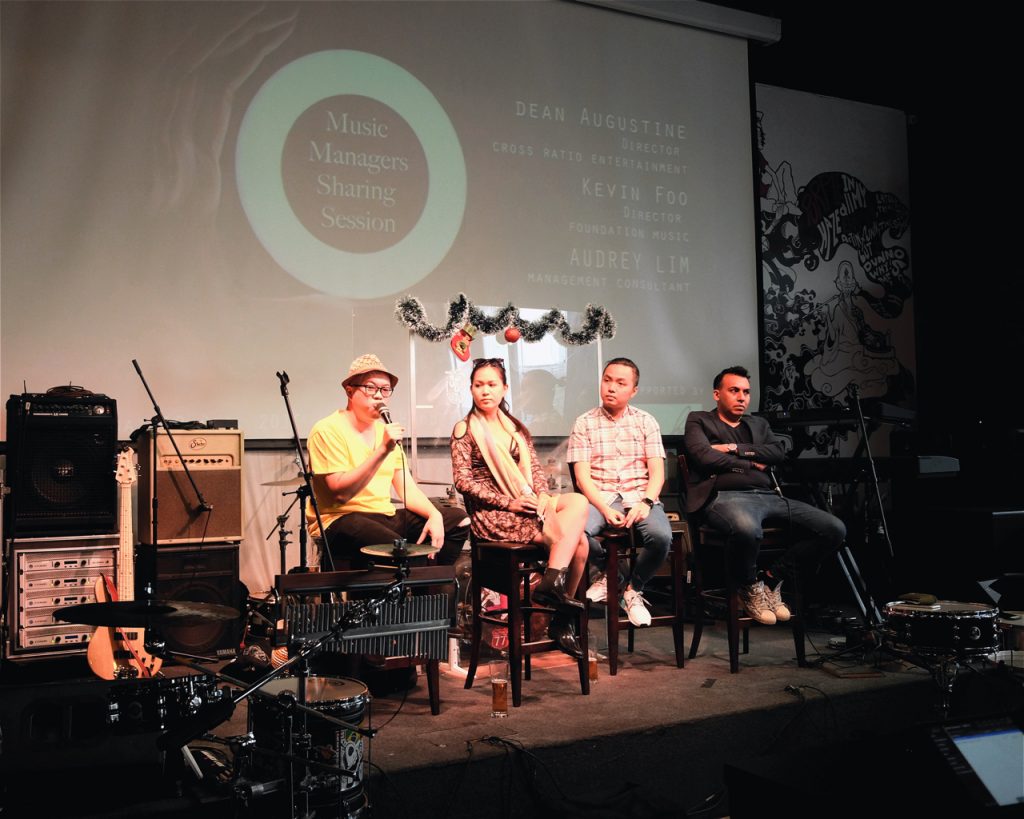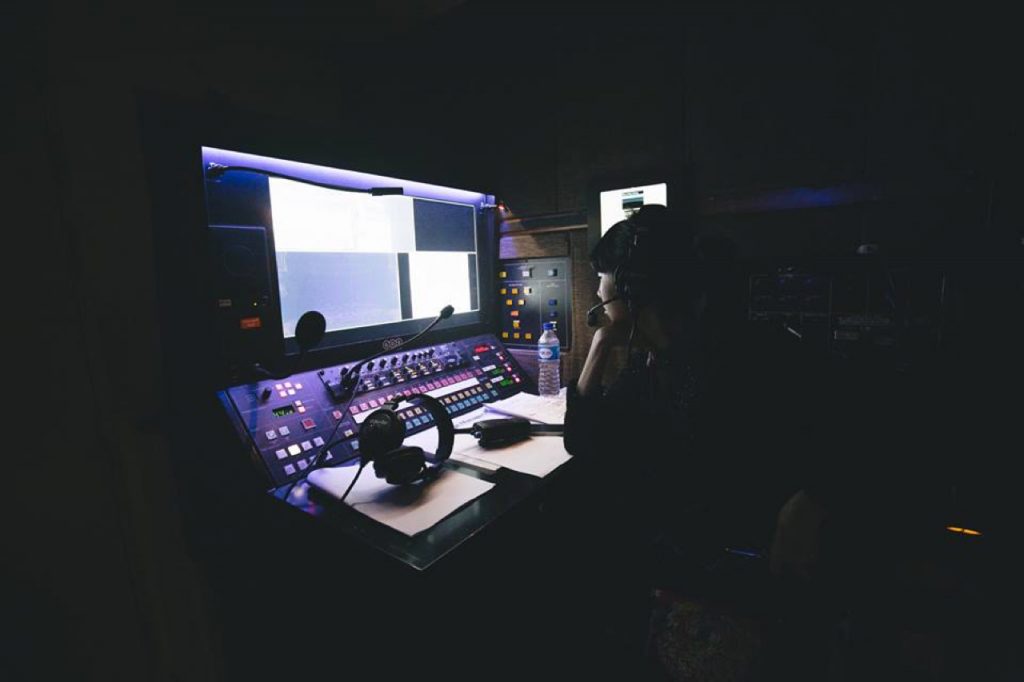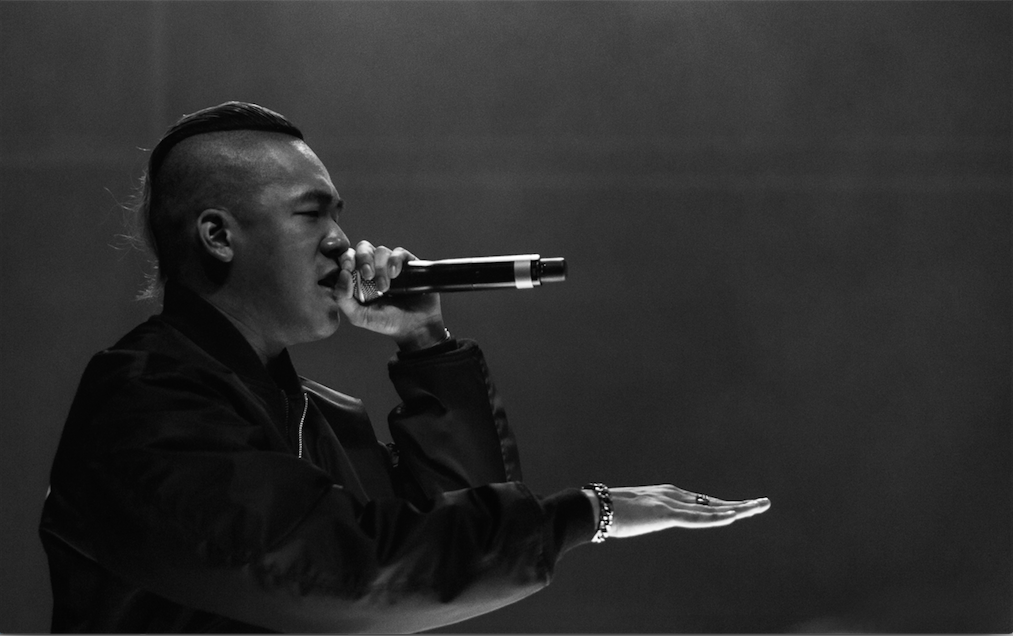Top image credit: Pernod Ricard Singapore
“Music today is 10% music and 90% marketing,” Audrey Lim, the former manager of The Sam Willows, states unequivocally. Across from her, at a sharing session at Hood Bar in Bugis+, Kevin Foo, who currently manages Linying, shares a different approach: “For us, it has always been all about the music.”
This isn’t to say that The Sam Willows can’t sing, or that Linying has to worry only about singing. These days, with digital platforms like Spotify and Soundcloud having monopolised the way we listen to music, artiste managers need to find ways for the talent they work with to reach their audiences.
For instance, when Sam Willows singer Benjamin Kheng uploads to Snapchat a spontaneous, solo jamming session recorded with just him in his bedroom, chances are there’s nothing spontaneous about it. Instead, it’s part of a content strategy designed to maintain audience engagement. It’s things like these that can now cause music managers extraordinary frustration—things they never had to deal with before. 38-year old Willy Tan, who currently manages ShiGGa Shay and Jasmine Sokko, shares that Jasmine is an intensely private person.
“This means that she die die also doesn’t want to do the whole social media thing,” he says, “So we just have to find a way to use that to our advantage.”

When I first see Willy at work, he’s standing slightly awkwardly behind a crowd of screaming, adolescent teenagers. We’re at the Folkestone Festival at Singapore Polytechnic, and as ShiGGa Shay leaps about on stage spitting lines about kopi siu dai and milo dinosaur, Willy circles the crowd with his iPhone in the air. This scene—everything from the way he looks to what he’s doing—is a picture of what most people think his work is about. That all you have to do as a music manager is be the biggest fan of whoever you’re managing.
But the details of his daily routines are admittedly far more mundane. They include everything from arranging for rehearsals to talking to brands and creative agencies to chasing these same brands and creative agencies for payment.
“In Singapore, where there is hardly a music industry, I usually have to cover a lot of ground: Personal assistant, producer, A&R (commercial and artistic development of the artiste), publicist, legal advisor, etc,” he tells me. He’s also had to miss the birthdays of family and friends, along with New Year’s Eve celebrations for the past 6 years but says, “Hey, if I’m working, that means business is good.”
Willy calls its a scene rather than an industry
It came as a surprise to me that Willy hasn’t always worked with hip-hop acts and electronic singer-producers. He’s worked with singer-songwriters and indie bands in the past, and points out that it’s not really about the genre. As long as he likes the music, it works for him.
And in a way, this is how the artiste management game in Singapore functions. Things are always changing, and a lot of it comes down to both opportunity and circumstance. Foundation Music’s Kevin Foo started with just one band, The Steve Mcqueens, when he moved from music production to management. Back then, the band made it very clear from the beginning that they wanted only to be a touring band.
Likewise, Dean Augustine of Cross Ratio Entertainment started his freelance career with just Tay Kewei whom, he recounts, rejected him 3 times before signing with him. He stresses that it’s the responsibility of managers to do their research so they can develop their artistes. With Kewei, it took a discovery that in Taiwan, audiences like it when English artistes sing in Mandarin, for her to break into the market there.

For someone who’s just starting out in this business, all this can sound pretty overwhelming. Sarah Sim, who recently worked with Charlie Lim and Inch Chua before moving to Warner Music to do marketing, tells me that when she first started doing management work, she thought that all she had to do was hang around and sell merch. Funnily enough, this is also one of her biggest pet peeves—that people assume all she does is follow her artistes around.
While her job is far from glamorous, she wasn’t always good at it either. When Charlie Lim first graduated from his studies in Melbourne and was headed back to Singapore to pursue his music career, she underestimated how little she knew and how much she had to learn about putting a show together.
“If there is a show coming up, it isn’t as simple as rocking up to play. Where is the venue? Is it better for the artist to perform solo or with a band? How should the stage layout look? How should performance intro be like? How do we pull off an encore with a bang? If they have a new release, it is not as simple as putting it up online. How do you entice the media to write about it? How do you keep the hype going for months? Who will be doing the artwork? How will the physical merchandise look like?”
“I was so bad at it!” she gushes over lunch one day, surrounded by a bowl of laksa, a bowl of chicken curry (she asked specifically for the drumstick), 3 slices of white bread, and two pieces of otah. The way she eats, I realise, is exactly how she’s come to approach her career. She knows what she wants, and has crafted a systematic approach to attaining all of it.


It also becomes apparent that it takes a certain kind of individual to find the music business both thrilling and fulfilling. Hardly is there a typical day; if there’s a show or a release, Sarah spends her day negotiating rates for shows, chasing payments, doing production and technical prep, or working out show schedules.
During shows, Sarah arrives an hour before soundcheck to make sure everything is ready for the band when they arrive. Once that’s done, she worries about the little things like making sure there are water bottles on stage. After that, she finally gets to do what she thought she would be doing: Sell merch. Then it’s packing up and supper time.
When I tell her that this sounds like her life really isn’t about her at all but all about the person she manages, she agrees without hesitation. At the same time, she admits that she hasn’t figured out what kind of manager she tries to be.
“After hacking it out on my own for 4 years, I felt I hit a glass ceiling. I didn’t know if I was progressing, if I have been doing things right, and how to get better,” she says with regards to her recent decision to leave music management (for now) to learn about other aspects of the music industry.
“I’m always their friend before their managers,” she goes on to say, “I never make a decision on their behalf without consulting them or letting them know what I’m about to do.”
She’s also fully aware that different artistes require different management styles, and bounces comfortably between different approaches. Inch Chua, for instance, likes to do things no one has done before. She also likes things snappy so this allows Sarah to compile details for quick approval before going ahead with decisions. Charlie Lim, on the other hand, likes things organised and detailed, with everything planned out. He also constantly welcomes ideas and suggestions about things he might never have considered.

It’s worth noting that every manager does things a little differently. Audrey Lim, the former manager of The Sam Willows, recounts her time with the band in Austin, Texas when they played at SXSW. She knew they were going into a market that knew nothing about them, and so insisted that they busk on the streets before their show to drum up awareness of their music. While the band was far from thrilled to have to do this, it worked.
So while some musicians might be wary of managers for now bringing up words like ‘marketing’ and ‘content,’ the truth is that the music industry isn’t what it used to be. Record labels no longer have the cash to throw at musicians to develop themselves.
Gone are the days as well, I say to Sarah, where we discover music organically by researching our favourite bands and their favourite bands. “Yeah, and we don’t go into music stores and stumble on good music anymore,” she concurs, “People listen to more singles now than they do albums. Everything is all about playlists!”
This is not to say that the local music industry isn’t growing. Willy calls it a scene rather than an industry, and Sarah remarks that it’s actually like a dysfunctional family. One big challenge is that plenty of bands and managers start out wanting to change how things are done, only to encounter the same problems as those before them. While they learn to do things slightly better, sometimes they get jaded and end up quitting the industry. But for those who do stay, they pass on lessons to the new guys.

Sarah tells me that over the years, she’s learnt that the music industry is all about building meaningful relationships. When she first started being a manager, she wanted everything to be transactional. She didn’t want to have to make friends or meet people in a way that felt fake. But she soon discovered that you can’t associate yourself with this business by being disconnected from the community. After all, being connected means you know that’s happening in the scene: Who’s releasing what, who wants to work with who, and so on.
Most importantly, she says, “Promoters, sound crew, booking agents, government agencies, they’ll remember your artistes if they’ve had a pleasant time working with you.”
In a moment of honesty, Sarah confesses that she isn’t sure whether being an artiste manager is currently a sustainable career. When I ask her how much she used to get paid, all she can tell me is that she would take a cut from what her artistes made from shows, brand engagements, and so on. That said, she aspires to be like Lush 99.5’s Vanessa Fernandez one day—someone she calls a full-time badass.
If anything, this is a clear sign that regardless of how misunderstood music management work is or how difficult the music industry is as a whole, there will always be role models for those willing to tough it out, keep learning, and evolve with the times.








